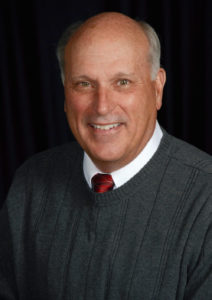But I can’t take my personal ‘stuff’ to work!

I’ve got news for you Mister or Madam CEO … you already do. Your employees know if you are having a bad day. They can usually spot it as you get out of your car in the parking lot. The “watch out for the boss” signs are posted early in the day – sometimes even before you arrive.
They love it when you are having a good day. They feel like they can ask for additional resources, are inclined to think more creatively, and are happy to share their ideas with you. When you’re happy, everybody is happy.
We are used to dealing with the daily peaks and valleys of running our businesses and managing stress at work. That is normal. Some issues are out of our control, but there are also many we can fix. When we have a high-performing business, we assemble our team and collectively think about, talk about, then tackle the best solutions. We evaluate for reasonableness, risk, affordability, and time. We decide on our course of action – and execute.
But when we have personal problems in the workplace … that is not so easy. We feel the need to be strong, so we keep our personal issues at work to ourselves. We refuse to be vulnerable. In our own minds, we cannot be perceived as weak or unable to manage stress at work. We also don’t have a clue how to solve personal problems by ourselves.
In our Vistage peer advisory groups – we recognize the need to deal with the whole human being. As I have mentioned in a previous blog, we recruit outstanding leaders, and human beings walk through the door. Our business groups work with the whole person.
How and why? In Vistage Groups, confidentiality is the No. 1 rule. In my 13 years as a Chair, I have never seen that rule violated. When confidentiality is king, people reveal their true selves. Trust is the by-product of our peer advisory groups. Solutions are the results. We share personal triumphs and tragedies as well as business victories and challenges. When something good or bad happens, we celebrate and suffer together. We can also help decide and determine if the issues involved are serious enough to require professional help, whether that be legal, spiritual, or psychological. And we help them seek that help and hold them accountable for it.
So what have we learned over the years?
Vulnerability is strength. It seems counter-intuitive, but those who trust enough to be vulnerable with a group of trusted peers are stronger people after all. And their path to resolution is both easier and shorter. Like any muscle group, exercise makes them stronger. But you have to use them. Spouses are often good for that.
Be your true self. Be who you really are – and you will earn the respect of others.
Associate with people you can trust. Most people have a sibling or a best friend with whom they can confide. Find them. Trust them. Use them as a tool, but not as a crutch. Listen to them.





